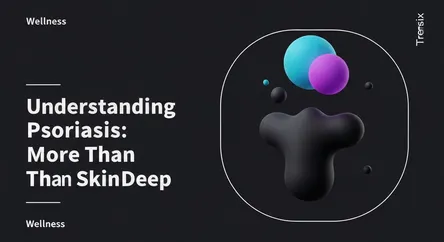Wellness
Understanding Psoriasis: More Than Skin Deep

A clear explanation of psoriasis, a chronic autoimmune skin condition, why it's gaining attention, and how it impacts daily life beyond the skin.
What is it?
Psoriasis is a chronic, non-contagious autoimmune disease that causes the rapid buildup of skin cells. This process results in thick, scaly patches which can appear as red or discolored plaques, often covered with silvery or gray scales. It is caused by an overactive immune system that mistakenly attacks healthy skin cells, accelerating their growth cycle from a month to just a few days. While patches can form anywhere, they most commonly affect the elbows, knees, scalp, and lower back. Psoriasis is a long-term condition known to cycle through periods of flare-ups and remission.
Why is it trending?
Awareness is growing due to advocacy efforts and designated awareness months that aim to educate the public and diminish the stigma associated with the disease. These campaigns highlight that psoriasis is not contagious and emphasize its connection to other serious health issues like psoriatic arthritis, heart disease, and depression. Additionally, advancements in treatments, including topical therapies, oral medications, and biologic drugs, offer more effective ways to manage symptoms. This progress in research fuels public interest and provides hope to those affected.
How does it affect people?
The impact of psoriasis extends far beyond the physical symptoms of itching, burning, and skin pain. The visible nature of the condition often leads to significant psychological distress, including anxiety, depression, and low self-esteem. People may face social stigma and isolation due to common misconceptions about the disease. Daily activities can be challenging, affecting sleep, clothing choices, personal relationships, and work productivity. Furthermore, up to 30 percent of individuals with psoriasis also develop psoriatic arthritis, a related condition causing painful joint inflammation.